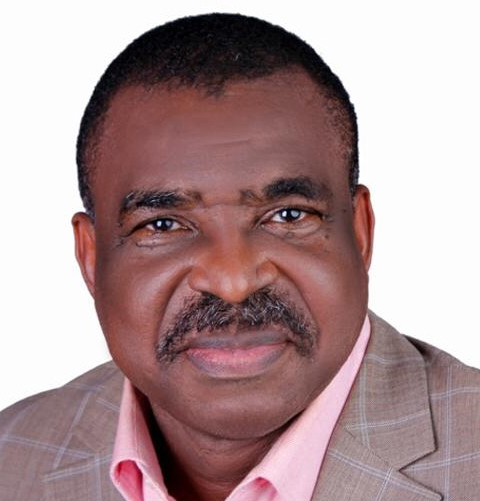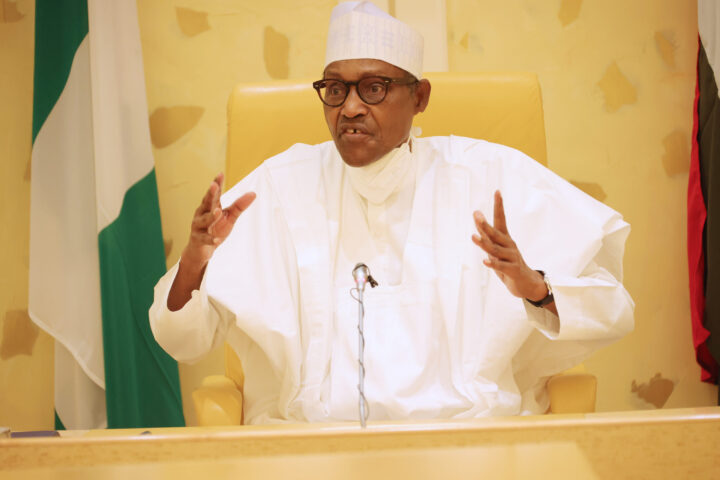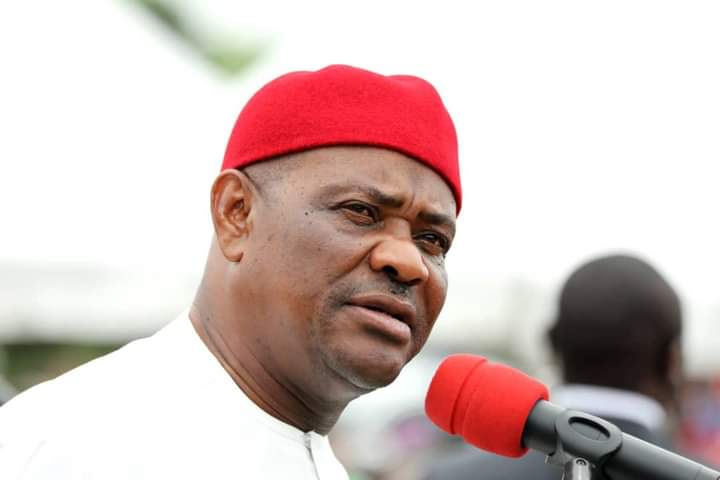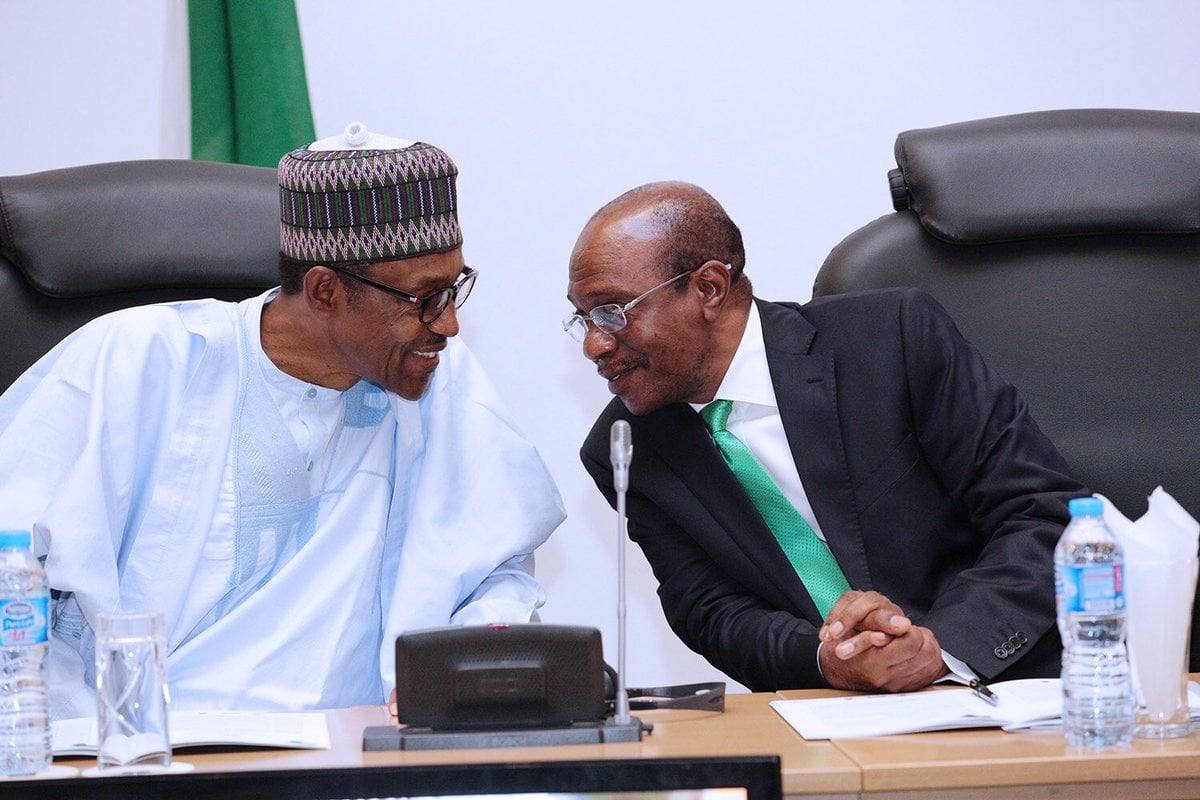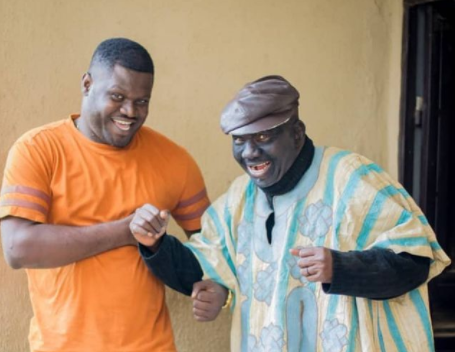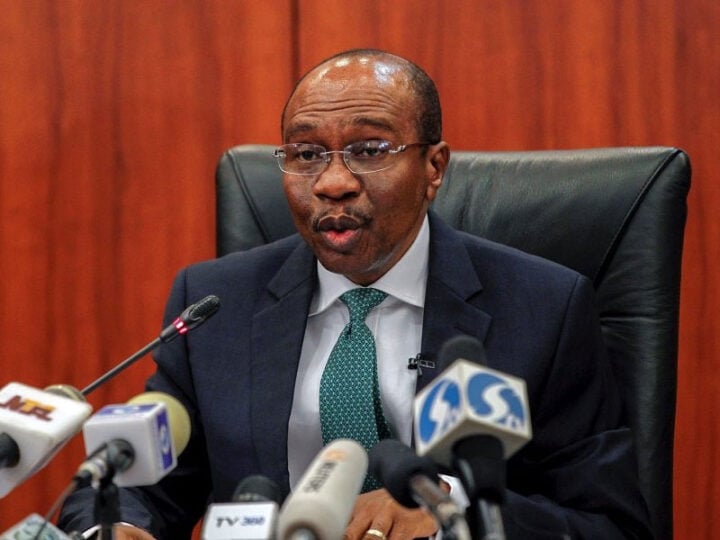It is what was said and not said by the attorney general of the federation and minister of justice, Abubakar Malami to journalists at a press conference held on November 9 in Abuja that first indicated to me that the ice in the frosty relationship between the Igbo and Yoruba nationalities with respect to separatist agitations and the government at the centre with President Muhammadu Buhari at the helm is about to thaw. I second-guessed Malami when in response to a reporter’s question about the possibility of a political solution to the federal government’s prosecution of Nnamdi Kanu and Sunday Igboho, he stated that a negotiated settlement for the unshackling of the Indigenous People of Biafra, IPOB leader, and Oduduwa nation movement leader, was not off the table.
Without being combative, the minister of justice took time to paint the conditions precedent to such settlement.
“So, it is not a conclusion that one can outrightly make without juxtaposing associated facts relating to the reconciliation; there has to be an approach and then a counter consideration.” It is a no brainer to figure out that ‘the approach’ that Malami was hinting at is the subsequent visit by the high profile Igbo elders, politicians, and cultural leaders as well as the clergy to president Mohammadu Buhari in Aso Rock Villa on Friday, November 19, 2021, which is about 10 days after.
It is also needles pointing out that at that stage, both the expressed and unexpressed views of the minister of justice at the Wednesday press conference confirmed my haunch that it had been concluded that a political settlement of the political storm arising from the crisis of separatism rocking our country, was ipso facto.
Everything else is a mere formality.
Advertisement
Ostensibly, the impending resolution is owed to entreaties from leaders from the Igbo and Yoruba nations. But in reality, it may actually be influenced by leaders in the international communities who always use back channels and side meetings during global conferences to press fellow leaders to uphold certain democratic norms and ethos such as the universally acknowledged right of self-determination by individuals or groups.
The peace emissary branded as “Highly Respected Igbo Greats”, led by 93 years old Amaechi Mbazuluike, minister of Aviation in the first republic and ex parliamentarian, along with ex Anambra state governor, Chukwuemeka Ezeife, as well as Goddy Uwazuruike, a former president of Ala Ikenga, (an Igbo cultural group) plus Sunday Onuoha of the Methodist church and Tagbo Amaechi, was weighty enough to soften president Buhari’s heart to the extent that he has promised to do what he has informed Nigerians that he had not done in his six years of stewardship as President of our great country.
Here is how President Buhari couched his willingness to do the ‘unusual’ for peace to reign by freeing Nnamdi Kanu and Sunday Igboho: “You have made an extremely difficult demand on me as the leader of this country. The implication of your request is very serious.
Advertisement
“In the last six years, since I became president, nobody would say I have confronted or interfered in the work of the judiciary. God has spared you and given you a clear head at this age, with a very sharp memory. A lot of people half your age are confused already. But the demand you made is heavy. I will consider it.”
In my calculation, the visit and president Buhari’s response signal the beginning of the end of incarceration of Nnamdi Kanu and perhaps Sunday Igboho, both of whom have been declared the enemy of the country for their alleged roles as catalysts for the destabilizing and debilitating activities of angry Nigerians currently threatening the unity of our dear country.
And the current rapprochement which heralds the era of dialogue with, and between all the member ethnic nationalities that make up Nigeria has the potentials to ultimately foster an atmosphere of inclusiveness which is the indisputable panacea to the current ethnic and religious crisis occasioned by the exclusion from the governance of, or canceling out of non-members of the ethnic origin and religious belief of the present occupants of Aso Rock Villa which is a concern that has pushed our country to the precipice.
Given that president Buhari has been hobnobbing with fellow heads of governments in the course of attending a plethora of international events held overseas: ranging from the United Nations Climate submit (with all the major presidents and prime ministers in attendance) in Glasgow, Scotland from October 31; which was after he had attended an investment summit organized by Future Investment Initiative lnstitute in Saudi Arabia on October 25 within the same period of which Mr President Buhari had also attended the Parish Peace Forum held in Paris, France from November 11, before participating in the Intra African Trade Fair that took place in Durban, South Africa from November 15: it won’t surprise me if he gave positive listening ears to his colleagues.
All of the above-frenzied engagements abroad were crowned by the visit of the United States Secretary of State, Anthony Bliken to Aso Rock Villa on Thursday 18 November.
Advertisement
Curiously, the aforementioned flurry of diplomatic and international trade engagements by president Buhari happened between October 31 -November 19 when “The Highly Respected Igbo Greats” went on the peace mission to Aso Rock Villa.
Instinctively, my training in diplomacy has led me to believe that President Buhari’s colleagues across the globe must have weighed in with one or two words of advice with respect to how his administration could make some concessions by allowing the separatist agitators’ crisis to be settled politically with the aim of lowering the prevailing hyperactive political temperature in Nigeria especially as the country approaches the next election circle in 2023.
In doing what diplomats know how to do best, Nigerian foreign policy technocrats, with the chief of staff to the president, Ibrahim Gambari, a veteran diplomat as the arrowhead, must have also sought and extracted some concessions from the concerned global leaders and friends of Nigeria seeking a political solution to the crisis.
And the removal of Nigeria from the list of religious freedom violators by the US may be one of such quid pro quo. Let’s be clear. There is nothing untoward about the action if indeed that is the case simply because such practice is the norm in the world of diplomacy.
Now, for too long, authorities in Aso Rock Villa have failed by omission or commission to apply the democratic ethos of accommodating dissenting voices and application of the concept of negotiation in conflict resolution which is a proven and invaluable tool for effective leadership in both public and private sectors.
Advertisement
Although it has proven to be an efficacious process for resolving conflicts since the evolution of mankind from savagery to civility, our country’s leaders seemed to have been impervious to the positive attributes associated with negotiations, hence the agitations from the easterners for a renegotiation of their membership of the Nigerian union seemed to have been falling on deaf ears, with avoidable catastrophic consequences.
While it is true that a secessionist clause that could have made it constitutionally lawful for the Igbo nation or any other ethnic nationalities to seek to separate from Nigeria is not in the 1999 constitution of the federal republic of Nigeria, (as amended) because leaders of the three ethnic nationalities, Igbo, Yoruba and Hausa/Fulani had rejected the inclusion of the clause at different points when the Nigerian nation was being formed, other avenues or windows for negotiating the continued unity of the multiple ethnic groups that constitute our country have always existed.
Advertisement
But our political leaders since the return of multi-party democracy, after the unfortunate military incursion into political leadership in 1966, and the jettisoning of parliamentary system of government bequeathed to us by the British colonialists, (following the adoption of American style presidential system of government in 1979) have failed to emulate the premiers of the regions in the first republic-Chief Obafemi Awolowo, Sir Amadu Bello and Dr Nnamdi Azikiwe who held regular conferences to iron out their differences whenever any source or sources of conflict were identified.
It may be recalled that it was during such meetings that each leader on different occasions proposed the inclusion of referendum or separatist clause in the statutes book and their counterparts opposed the proposal depending on the optics of the various ethnic nationalities at different points in time, on the viability of Nigeria as an entity.
Advertisement
Based on historical records, the list of those that proposed or opposed the inclusion of freedom of any of the four regions that make up our country from withdrawing their membership of the Nigerian nation range from eastern region premier, Micheal Okpara, Anthony Enahoro of Midwest, the western region premier, Obafemi Awolowo, as well as northern region premier, Ahmadu Bello. For lack of space and time l would not bore readers with the details. Nevertheless, to buttress the case that l am trying to make, it is apropos that l share the following quotes attributed to our political leaders at the formative stage of our country to validate the truism that the founding fathers of our country also had doubts about the viability of our country at its infancy.
Sir Tafawa Balewa, who later became the Prime Minister of Nigeria was recorded in historical archives as having made the following statement before Nigeria was granted independence by the colonialist:
“Since the amalgamation of Southern and Northern Provinces in 1914, Nigeria has existed as One Country only on paper, it is still far from being united. Nigeria’s Unity is only a British intention for the country.”
Similarly, the man who became western region premier, Chief Obafemi Awolowo also has the following statement contained in his 1947 book attributed to him:
Advertisement
“Nigeria is not a nation, it is a mere geographical expression. There are no “Nigerians” in the same sense as there are “English” or “Welsh” or “French”. The word Nigeria is merely a distinctive appellation to distinguish those who live within the boundaries of Nigeria from those who do not.”
The above comments credited to two of Nigeria’s revered leaders of yore attest to their initial skepticism about the feasibility of Nigeria as one united country after the amalgamation of the northern and southern protectorates by the British colonies in 1914.
You can imagine if the British colonial authorities clobbered on the head our now revered and iconic leaders, Balewa and Awolowo for expressing antagonistic sentiments about their unilateral merger of the northern and southern protectorates with disparate cultures and distinct religions, as authorities in Abuja are currently doing to both Nnamdi Kanu and Sunday Igboho who are patently fighting for the rights of their people for self-determination.
The reality is that those that we hold dear as our heroes past as portrayed in our national anthem would not have been able to secure Nigeria,s independence in 1960 if the politicians (our forebears that we idolize today)had not been outspoken about the desire to be free from the clutches of the colonialist and if the colonialist was not forbearing.
Put succinctly, the above de-amalgamation sentiments expressed by our past leaders underscore the fact that before the advent of modern-day advocates of separatism such as Nnamdi Kanu of IPOB in Igbo land and Sunday Igboho, driving the movement for the creation of Oduduwa Nation in Yoruba land, our past leaders also resented the concept of one Nigeria as forged by Fredrick Luggard, (the British merchant that metamorphosed into an agent of imperialist Britain) after he sold to Queen Elizabeth’s government the ‘smart’ idea of merging both northern and southern protectorates for the selfish mercantile interest of the European country.
It also underscores the inalienable rights rooted in the natural instinct for a people or nationalities to express dissent when they are not comfortable with an existing arrangement as is currently the case with the Igbos and the Yorubas whose dissatisfaction with the present circumstances of their existence in Nigeria, is being conveyed by Nnamdi Kanu and Sunday Igbo on behalf of their respective ethnic nationalities.
But unfortunately, authorities always hate such good people -perhaps, justifiably owing to their ability and capacity to disrupt the status quo and make leaders uncomfortable. That is the space in which Kanu and Igboho find themselves today.
Contrary to the de-amalgamation sentiments expressed by both northern and western premiers, Tafawa Balewa and Obafemi Awolowo, as earlier highlighted, Nnamdi Azikiwe, an Igbo centrist took the following unique and contrary position to that of his colleagues.
He is credited with the following comment:
“In my personal opinion, there is no sense in the North breaking away or the East or the West breaking away; it would be better if all the regions would address themselves to the task of crystallizing common nationality, irrespective of the extraneous influences at work. What history has joined together let no man put asunder”
Strangely, the Igbo leader, Dr.Nnamdi Azikiwe, who later became the governor-general of Nigeria and a peer of the Hausa/Fulani and Yoruba leaders, Tafawa Balewa and Obafemi Awolowo, proposed the inclusion of secession clause in the constitution during the formative stages of our country which he opposed, appear now to be the architect of the misfortune of his people- the Igbos that have been struggling to exit Nigeria also known as BIA-EXIT.
Isn’t it such a paradox that it is that decision to reject the introduction of a separatist clause in the statute book by Azikiwe back in 1953 that has turned around to hurt his people-the Igbo nation that has been seeking ways to decouple itself from Nigeria by force as was the case in 1967 when it tried to secede but failed to achieve the objective after it was defeated in the ensuing war? And it is blithe on our country’s democracy credentials that the quest to secede has remained a burning desire that is still being nursed by the Igbos after over fifty years since the unfortunate civil war ended, through the platform of both MASSOB and IPOB in non-violent ways.
Incidentally, it is the non-violence claim of lPOB in pushing their agenda that has been disputed by the authorities in Abuja, hence the proscription of the separatist group and incarceration of its members, including their leader, Nnamdi Kanu, captured in Kenya and brought to Nigeria for trial and which is the reason that the “Highly Respected Igbo Greats“ stormed Aso Rock Villa intent on softening president Buhari’s heart in the bid to get him to (as it were) temper justice with mercy by releasing Kanu from the jail unconditionally.
Presumably, a similar amnesty would be extended to Sunday lgboho, the convener of the Oduduwa nation movement that is also being held in jail in the Republic of Benin at the behest of the federal republic of Nigeria.
Now, l have engaged in the forgoing literature review, not for the heck of it, but to put in perspective, the epidemic of separatism currently haunting Nigeria like a demonic specter.
Clearly, what is currently acutely absent in our political ecosystem is the ability and capacity of our leaders to lead by consensus as opposed to the application of force as reflected by the might is right or take it or leave it mentality of our modern-day political demagogues.
That is quite the opposite of the way and manner that our past leaders- Nnamdi Azikiwe, Tafawa Balewa and Obafemi Awolowo managed our diversity through conferences during which they negotiated the partnership between the multiple ethnic nationalities with each of them tabling their issues for deliberations during the conferences held on short intervals before the military incursion into politics that originated from the 1966 military putsch.
Apart from the suspension of the constitution which the advent of the involvement of the military in the political affairs of our country foisted, the mantra ‘unity of Nigeria is not negotiable is the other mortal blow that the military imposed on the nation. How can an agreement or union not be negotiable?
In an opinion piece that l wrote and published in the mass media and by daily independent on July 14, 2017, titled ”Biafra: From Monologue To Dialogue And Getting To Yes“, l extolled the virtues intrinsic in the art of negotiation, and expressed delight that the authorities have commenced negotiations with MASSOB and IPOB which indicate that the crisis has shifted from Monologue by the separatists via civil disobedience and diatribe to Dialogue in the form of direct or back-channel negotiations with the agitators by the authorities in Aso Rock Villa.
But that optimistic viewpoint turned out to be a false hope as the positive signs that l had sighted and presumed were positive, manifested as a mere mirage.
To my pleasant surprise, a similar world view which is that: “the unity of Nigeria is negotiable” was expressed recently during The Sun newspaper MAN OF THE YEAR AWARD by one of Nigeria’s seasoned administrators, and diplomat, Ambassador Babagana Kingibe, MKO Abiola’s running mate as Vice President, who is also ex-secretary to the government of the federation under the watch of late Umar Yar’adua as president. Since he is also one of the powers behind president Buhari’s throne, l am optimistic that the world view that Nigerian unity is negotiable may now be radiating around Aso Rock Villa’s presidential seat of power.
Not many people realize that it is the seemingly innocuous mantra: ‘ Nigeria’s unity is not negotiable’ often vaunted by successive occupants of Aso Rock Villa that is responsible for the instability wracking the political system and insecurity wrecking lives and properties with the ferocity of a bull in a China shop.
An Italian friend of mine once remarked in halting English: “spaghetti strong, spaghetti break.”
The import of that wise counsel is not lost on me as it implies that anything that is unbendable is susceptible to being broken and it is a culture or lesson that Aso Rock Villa has been slow in imbibing.
Nevertheless, as the conventional wisdom goes: it is better late than be late.
In the wake of the flare-up of hostilities between Southern governors forum and their northern counterparts via the release of incendiary communiques by both sides, with the southern governors threatening that the presidency must return to the south in 2023 based on the presidency rotation agreement, and the northern governors countering by claiming that the rotation of presidency is alien to the 1999 constitution of the federal republic of Nigeria as amended, l wrote the article titled “After Northern And Southern Governors Butting Of Heads, What Next?,”
It was first published in the mass media and on October 7, 2021, by TheCable. I would like to crave readers’ indulgence to allow me to republish an excerpt which drives home the point that l am still trying to make via this intervention.
“Today, the Igbos that are pressing for referendum via Indigenous People of Biafra, IPOB, are prohibited by the authorities from doing so. That is ostensible because there is no constitutional backing for separatism and the current Aso Rock Villa occupants have zero tolerance for such agitations.
The beauty of governance under the parliamentary system which the British practice and bequeathed to Nigeria upon independence is that whenever any party to the union was uncomfortable with any rule or condition guiding the partnership, the concerns were ironed out during conferences that were held in Ibadan, Enugu and Kaduna.
So in the good old days, the unity of Nigeria was negotiated by the leaders of the east, north, and west, later mid-west and our country did not break up. That is in stark contrast with the current dispensation whereby the mantra: the unity of Nigeria is not negotiable, is oft-touted by the powers that be in Aso Rock Villa. The simple rule of the thump about partnerships and marriages is that if they can not be negotiated, they would ultimately be broken.
The unfortunate civil war of 1967-70 with its horrific consequences ingrained in our memories is likely the driver for the mindset of Aso Rock Villa that the unity of Nigeria is not negotiable.
But as genuine as the desire to keep Nigeria as one indivisible entity is, it appears to me that the ineffectual and ineffective proclamation by the leaders in Aso Rock Villa that Nigeria’s unity is not negotiable may be doing more harm than good to “The labors of our heroes past…” which may end up being in vain if peradventure our country unhinges.”
I went on to add that if a referendum was called today, l am of the conviction that most Nigerians would opt to remain in Nigeria if equity and justice are restored through the observance of federal character principle-a unifying policy enshrined in the 1999 constitution of the federal republic of Nigeria.
Presumably, it is likely that it is the acquiescence of Aso Rock Villa apparatchiks with the reasonable sense in that opinion piece that might have in one way or the other also pricked the conscience of those in the orbit of power and therefore one of the motivating factors for the softening of president Buhari’s heart towards the separatists as reflected by his resolve to apply a less military approach to the resolution of the conflict, which is autocratic, and instead rely more on negotiation-democracy’s prime and most efficacious tool for settling disputes.
If President Buhari unshackles, Nnamdi Kanu, and Sunday Igboho, (as he appears set to do) and thereafter brings IPOB and Oduduwa nation agitators to the round table for negotiation, he would have neutralized the highly toxic relationship between ethnic nationalities that have wreaked unprecedented havoc on the nation and severely damaged the fabric of unity in our beloved country.
What is more: if the gale of separatism is stymied, President Buhari would be listed as a warrior for peace alongside the president, Umar Yar’adua of blessed memory who reigned from 2007-2010, (during which period he literarily quenched the fire in the Niger delta made worst by his predecessors-Sani Abacha and Olusegun Obasanjo who had applied brute force in the management of the conflict) by offering amnesty to militants in the region who had made it extremely difficult for oil/gas exploration to happen in the region which is the treasure trove of Nigeria.
It may be recalled that violence in the region characterized by vandalism of oil/gas infrastructure and kidnappings of oil workers was triggered by the rejection of their demand for the respect of their environmental rights and control of the resources in their region that is ravaged by oil/gas exploration activities.
Their demand had fallen on the deaf ears of the federal government which resorted to the application of military action against the agitators. As if history keeps repeating itself, it is unfortunate that the adoption of military jackboot or slash and burn approach instead of negotiation has also been the attitude of the present government in the instant case, featuring IPOB and Oduduwa nation separatist movements.
In conclusion, as an encouragement to president Buhari and perhaps to hasten his decision to free Nnamdi Kanu and Sunday lgboho, he should adopt or mimic the good initiative of the former president of South Africa under the apartheid regime, late Frederick de-Clerk, who is a rare and noble gesture, freed the iconic Nelson Mandela from prison where he was serving a jail term for fighting for the end of apartheid which is white minority rule over the black majority in South Africa-a practice that has gone down in history as man’s greatest inhumanity to man.
As Nigeria is now on the cusp of an end to the scourge of separatism ravaging the nation, evidenced by the recent accommodating utterance by president Buhari in response to the request by “The Highly Respected Igbo Greats” the good old tool of negotiation preferred by diplomats for settling conflicts, holds the ace as it has proven over the years to trump the tyrannical resort to the use of barrels of gun preferred in the autocracy of which Nigeria is not one.
As President Buhari prepares for his exit from Aso Rock Villa in 2023, restoring peace and unity in Nigeria in the 11th hour of his reign by freeing the leaders of the separatist groups, Kanu and lgboho along with their followers would be another feather on his cap. It would be on top of the accolades that the outgoing president is already earning for making it possible for the amendment of the electoral laws allowing for the transmission of election results by INEC electronically.
Expectedly, all eyes are currently on Mr president as the nation awaits the official signing of the amended electoral bill 2021 into law.
It is doubtless that it is another way that president Buhari would be leaving a positive legacy on the electioneering process in our country where integrity in the system has improved after his second term election in 2019 as reflected by the fidelity of the results of Edo (Sept.2020)and Anambra (Nov. 2021) states gubernatorial contests adjudged to have been conducted by INEC leveraging innovative and technology-driven systems.
Like the proverbial Oliver Twist that wants more, Nigerians await the introduction of electronic voting to further boost the integrity of our political office election process; introduction of state police for robust security at the sub-national level for more effective protection of the lives and properties of the masses dwelling in bandits and terrorists ravaged hinterland; and restructuring of the political system for an egalitarian society as well as the rotation of the presidency to our Igbo brothers and sisters for the sake of equity, before the curtain falls on what thus far has been described as a very tumultuous Buhari era.
In the event that Mr president meets the high expectations in the Things-To-Do-List catalogued above, he would be leaving Nigeria as a much better country than the condition he met in 2015 when he won the presidency.
But would President Buhari respond to the stimuli? Since he seems to be finicky about how he would be judged by posterity, l would argue that mr president would keep striving to leave an admirable legacy.
That is why l am willing to wager a bet that he would try his best to replace his initial sordid reputation of being a divider-in-chief (as his traducers like to characterize him) to being a chief unifier (which his admirers would love him to be ) in his later days in office by ensuring that he ticks off all the boxes in the list of expectations of most Nigerians that l earlier highlighted before the 2023 terminal date of his tenure.
Magnus Onyibe, an entrepreneur, public policy analyst, author, development strategist, an alumnus of Fletcher School of Law and Diplomacy, Tufts University, Massachusetts, USA, and a former commissioner in Delta state government, sent this piece from Lagos
Add a comment
